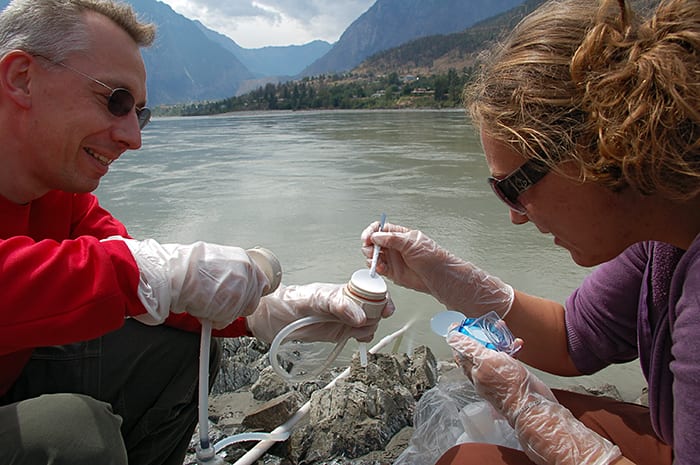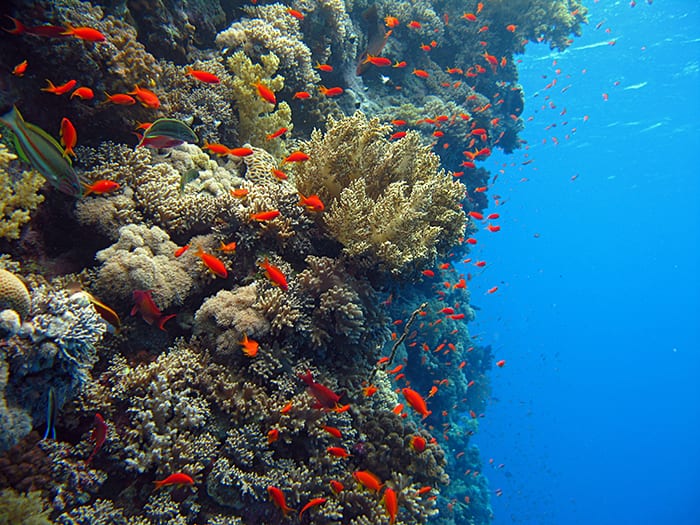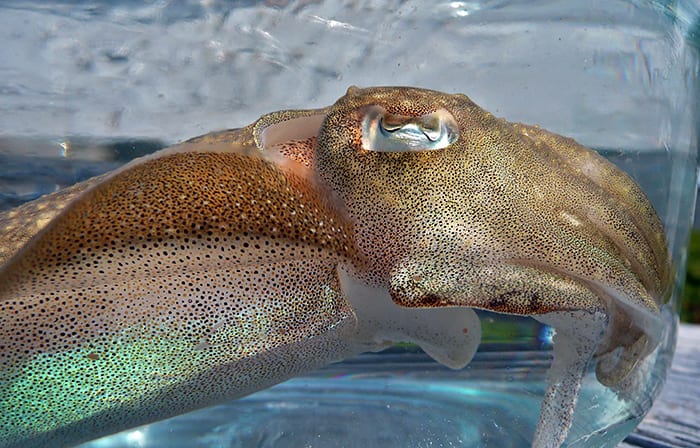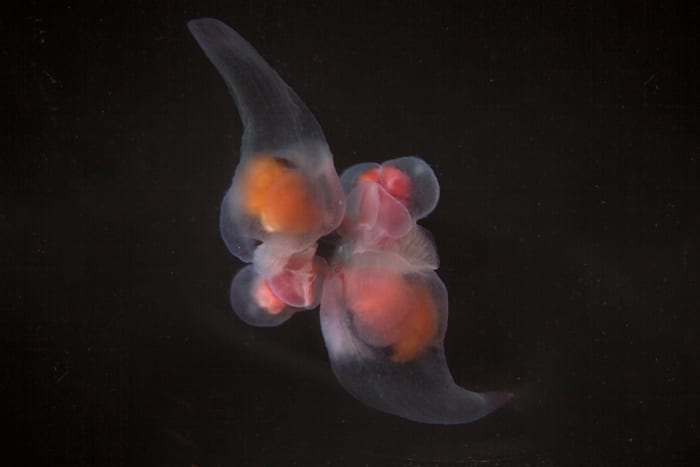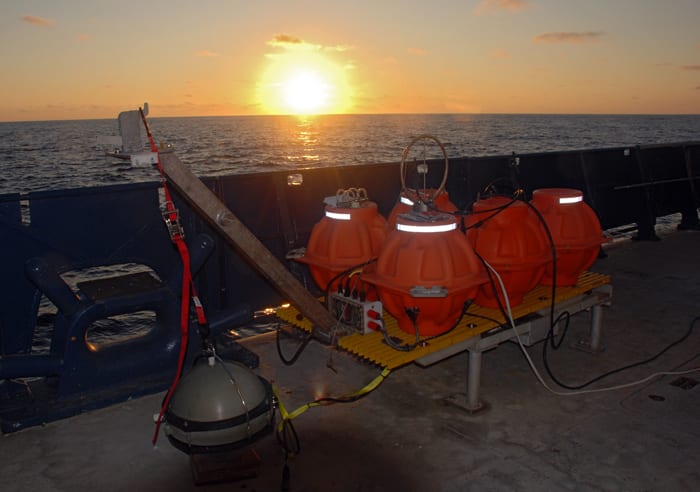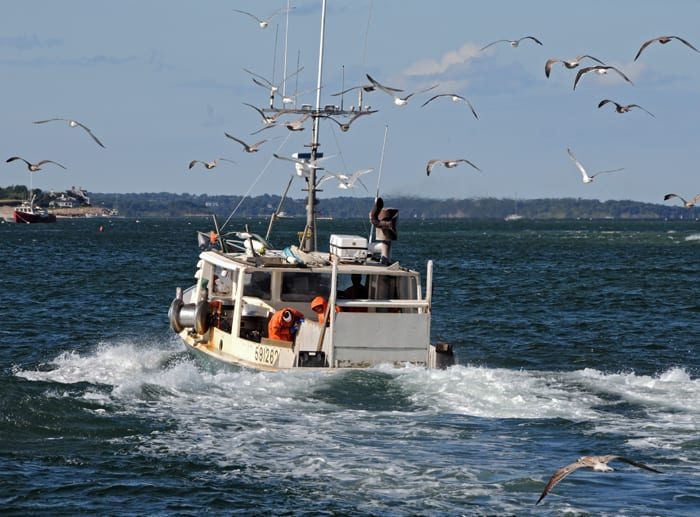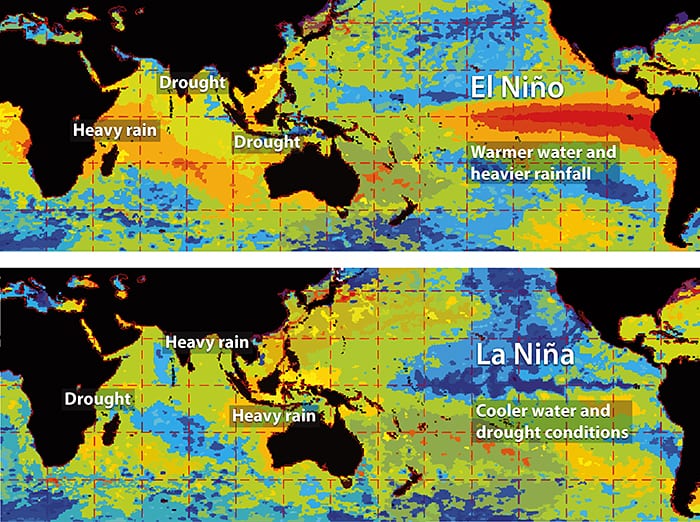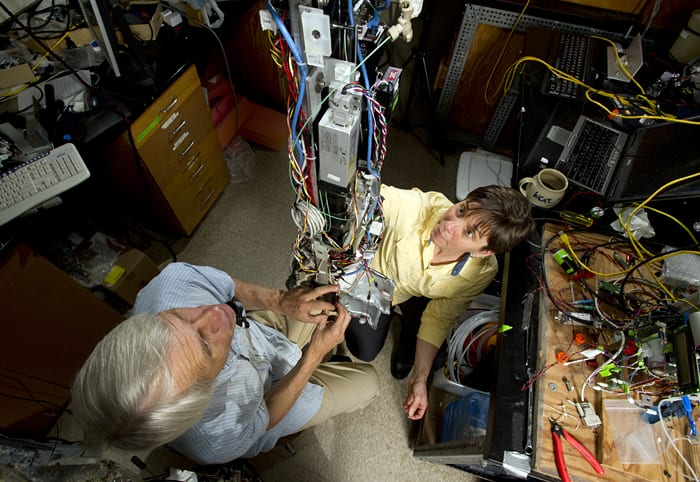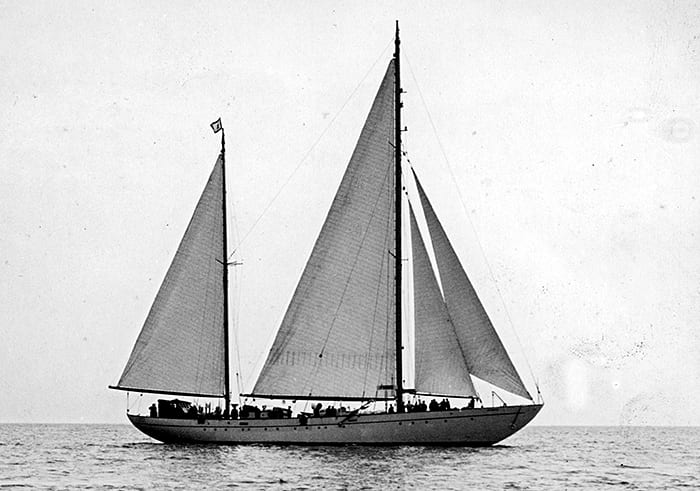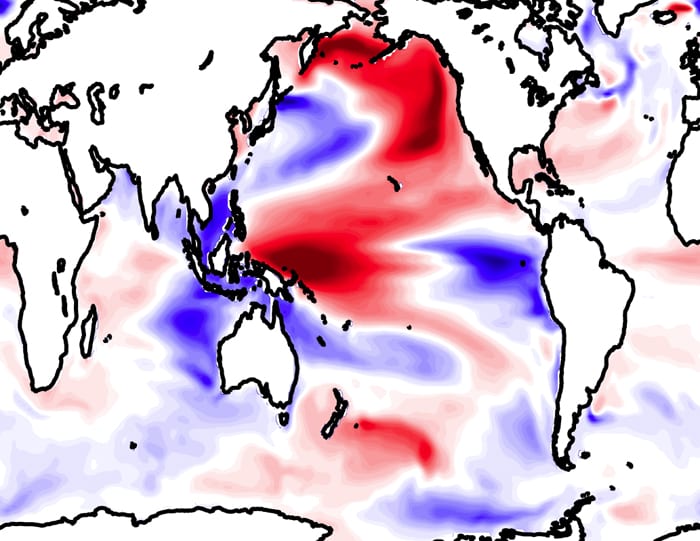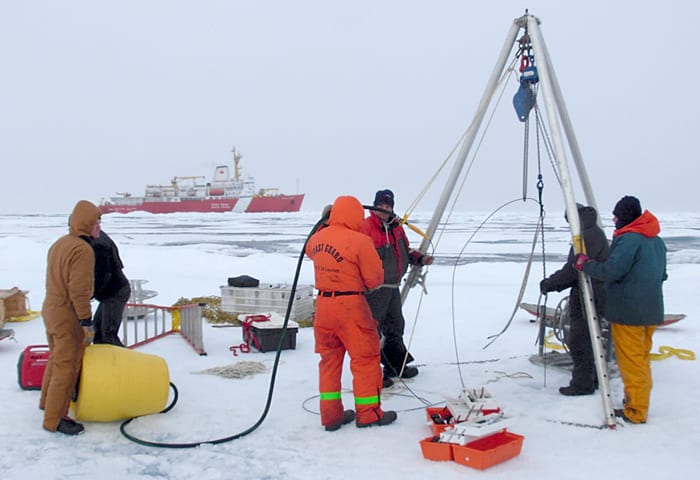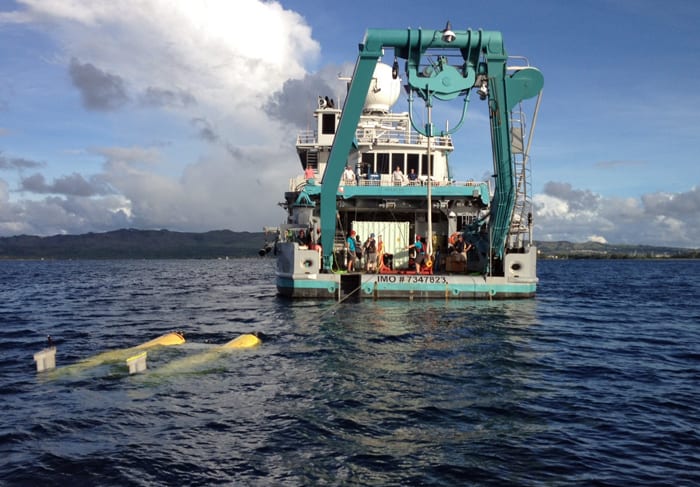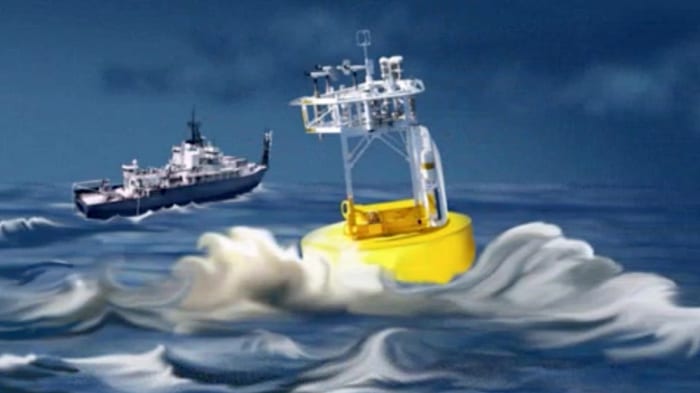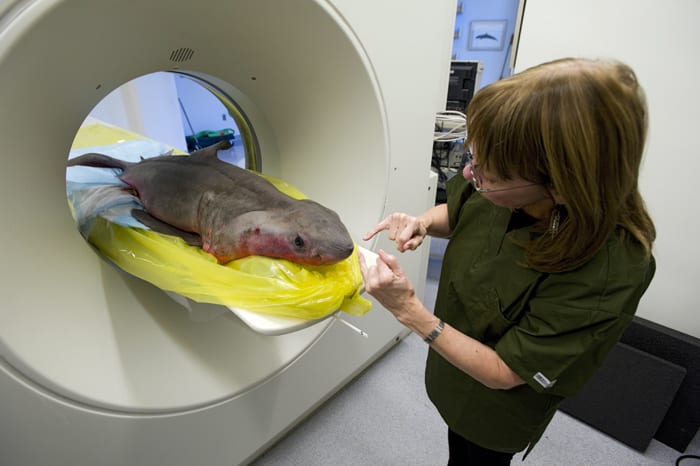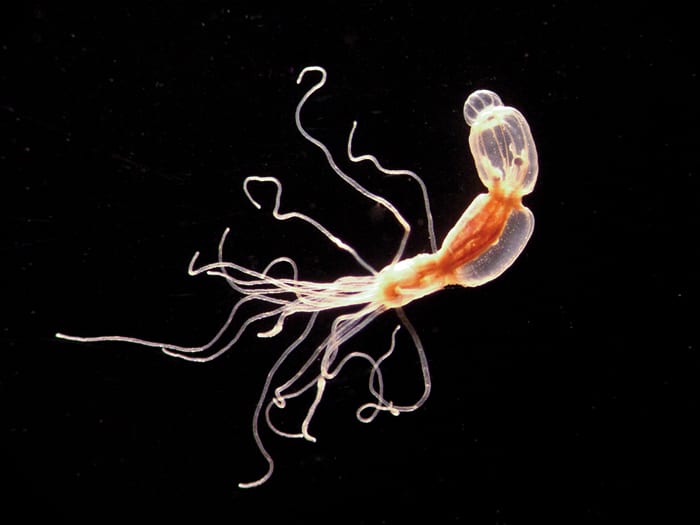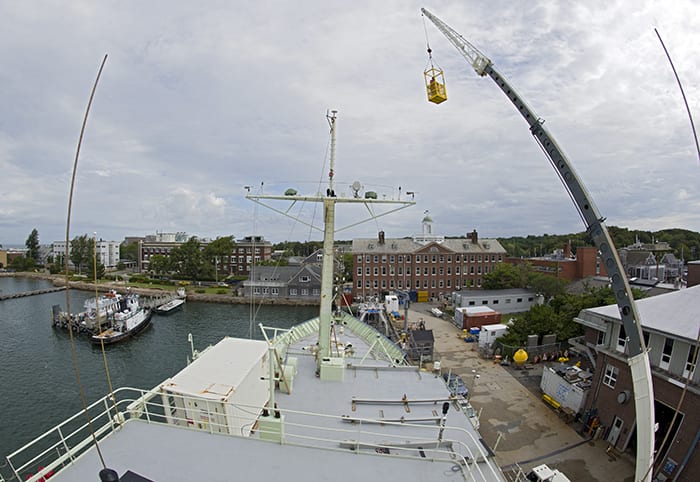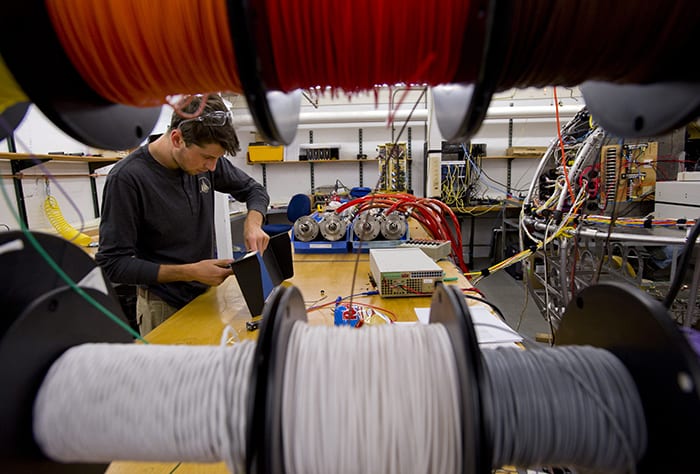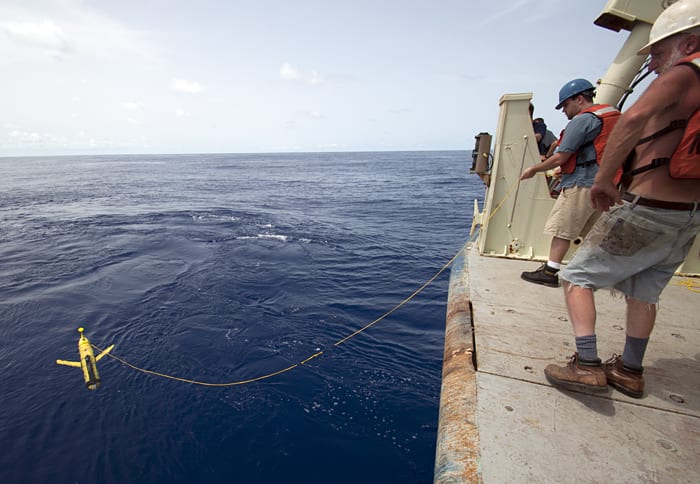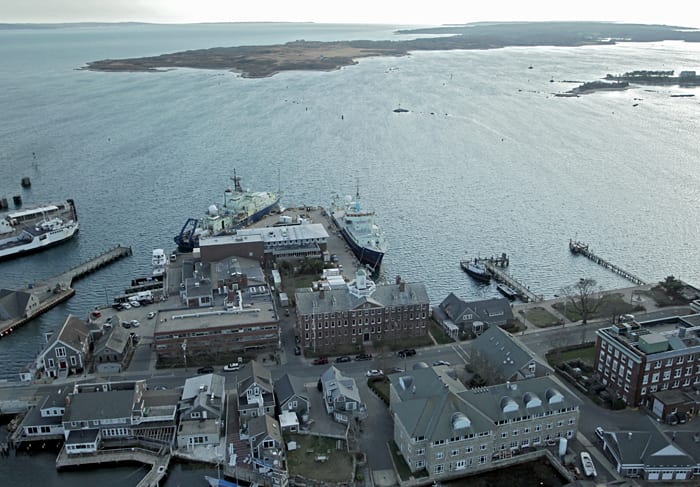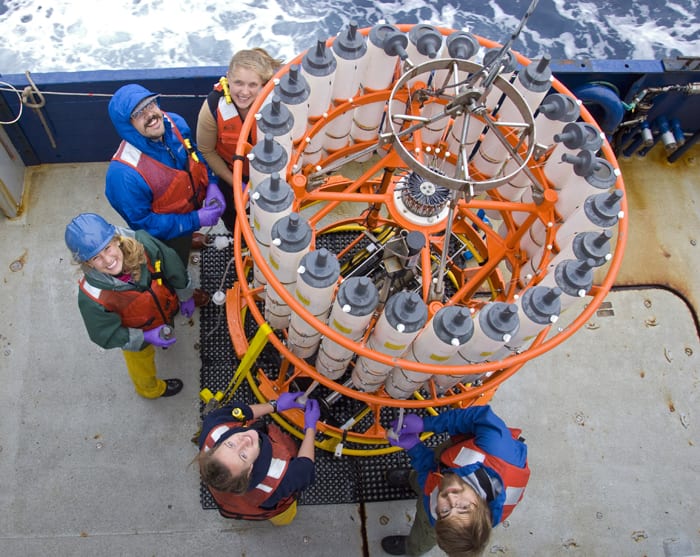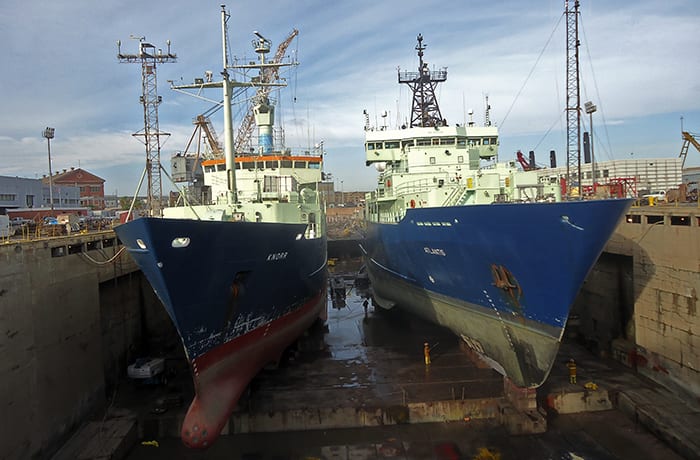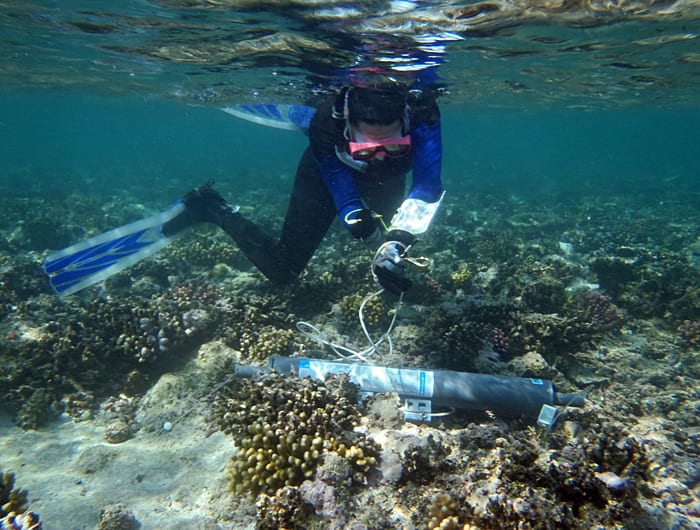Multimedia
Sampling the World’s Rivers
WHOI geochemist Bernhard Peucker-Ehrenbrink and Britta Voss, MIT/WHOI Joint Program student, take water samples from the Fraser River in British Columbia. Peucker-Ehrenbrink and scientist Max Holmes from the Woods Hole…
Read MoreOn the Wall
A vertical wall of coral defines the outer edge of a coral reef in the Red Sea in this 2008 photo. Individual coral colonies on the wall compete for access…
Read MoreSensitive Creature
Meet the cuttlefish, marine master of disguise. It swims by jet propulsion, has eight arms, great vision, and W-shaped pupils. Cuttlefish, like their relatives octopus and squid, can quickly change…
Read MoreAmorous Angels
Two shell-less marine snails, captured with a plankton net, mate in a glass dish. These half-inch-long animals are swimming snails called pteropods that live in open ocean waters. This species,…
Read MoreA Harvest of Seismometers
Like a sleigh full of pumpkins, an instrument composed of five ocean bottom seismometers (OBS) in orange housings and a broadband seismometer (gray ) rests on deck after on year…
Read MoreFloating Snack Bar
Trailed by gulls hoping for a quick snack, the fishing boat Decisive heads for harbor at Chatham, Mass. Scientists at WHOI’s Marine Policy Center and Woods Hole Sea Grant are…
Read MorePearl Harbor Remembrance Day
R/V Knorr doesn’t often sail to the Pacific Ocean, but when it does, it’s memorable. At the tail end of a 2009 expedition to deploy a series of Argo floats…
Read MoreCurrent Knowledge
The El Niño-Southern Oscillation (ENSO) is a natural cycle that recurs over two to seven year periods. When surface temperatures in the eastern equatorial Pacific are warmer than usual (El…
Read MoreMicroscopic Vision
WHOI biologists Robert Olson and Heidi Sosik created the Imaging FlowCytobot, which photographs, identifies, and counts plankton cells in the ocean 24 hours a day for months at a time…
Read MoreThe First Atlantis
Atlantis, the first ship used at WHOI for multidisciplinary ocean research, departed for sea trials after it was built in 1931. The 142-foot, ketch-rigged Atlantis retired from service to the U.S. oceanographic…
Read MoreA New Pattern Emerges
Regular changes in sea-surface temperature in the Pacific Ocean, such as , such as El Niño and La Niña, influence precipitation and storms over a wide swath of the globe.…
Read MoreIcy Outpost
Researchers from WHOI and crew from the Canadian icebreaker Louis S. St. Laurent prepare to deploy an ice-tethered micro-mooring (ITM) on a large ice floe in the Canada Basin in…
Read MoreGame Changer
In October, WHOI engineers working in Guam made a major breakthrough in remote vehicle technology. Using the hybrid remotely operated vehicle (HROV) Nereus equipped with an optical modem, a team…
Read MoreASIMET animation
ASIMET sensors measure ocean-atmosphere exchanges, helping scientists study climate by tracking heat, water, and wind fluxes across the sea surface.
Read MoreBeneath Shark Skin
This fall, a fisherman in California caught this four foot-long great white shark and brought it to the Monterey Bay Aquarium, where it died a short time later. The six…
Read MoreElegant Anemone
The half-inch-long starlet anemone, Nematostella vectensis, is a relative of reef-building corals. It lives in salt marshes along the east coast from Canada to Georgia, is easy to grow in…
Read MoreHigh Wire Work
Electrician Paul Roy, a contractor for WHOI, works via a basket suspended on a crane to adjust a search light mounted on the forward mast of the research vessel Knorr.…
Read MoreA Promising Career
Drew Smith, a junior at the Massachusetts Maritime Academy, is spending the fall semester with the Alvin group at WHOI working on several electrical components used on the submersible during…
Read MoreCan We Keep It?
WHOI/MIT Joint Program student Alec Bogdanoff (holding line) and Pete Liarikos, bosun on research vessel Knorr, tested a glider named “Boomer” (after a character from the television show Battlestar Galactica) during…
Read MoreBird’s Eye View
This aerial photo of Woods Hole village shows the two large WHOI-operated research vessels, Atlantis, left, and Knorr, right, at the WHOI dock overlooking Great Harbor. Many improvements have been…
Read MoreSeal Sightings
People come from miles away to see the seals off the shores of Cape Cod, but the animals are creating some challenges for local fishermen. Increasing seal populations led to…
Read MorePteropod Hunters
More than 1,000 miles off the coast of Oregon, members of a month-long expedition helped secure a CTD rosette on deck of the research vessel New Horizon. Researchers analyzed the…
Read MoreA Very Rare Moment
For the first time in recent memory, WHOI’s two large research vessels, Knorr and Atlantis, sit side-by-side during a scheduled maintenance period in Detyen’s Shipyard in Charleston, S.C. During dry dock periods, which…
Read MoreGetting Warmer
Whitney Bernstein, a graduate student in the MIT/WHOI Joint Program, samples water from a coral reef in the Red Sea in December 2010. Corals worldwide are subjected to rising water…
Read More
